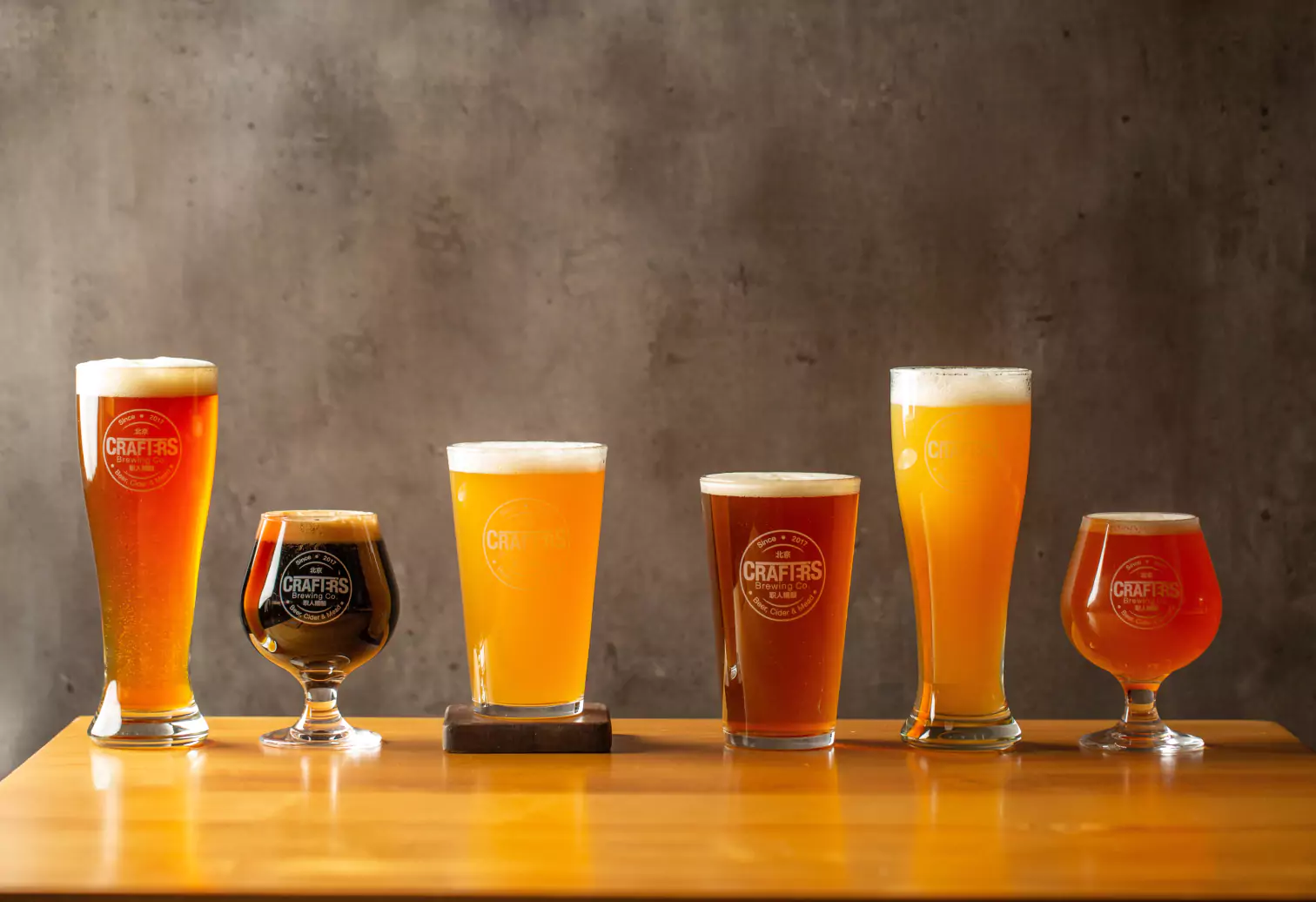Beer and Blood Sugar: Understanding the Impact on Glucose Levels

Key Takeaways
Last week, we took you through a quick guide to what beer is, how to brew it, and what drinking it in moderation can do for your health. If beer is your alcoholic beverage of choice, you may wonder what it means for your health. How does it affect health conditions? Is there a connection between the alcohol content, the amount of carbs, and the effects on your health?
And whether you’re drinking a light craft beer or a dense lager, it’s vital to know how beer and other alcohol affect your blood glucose levels. Read on to learn more about beer, blood glucose, and your health.
How Beer Affects Your Blood Sugar Levels

While alcohol can affect your blood sugar levels immediately after drinking, its effects can be seen up to 12 hours after you’ve consumed your last drink. Here are a few things you should know about how beer can influence your blood glucose levels.
Beer can increase blood glucose levels: Beer contains carbohydrates, which get absorbed into the bloodstream relatively quickly, leading to increased glucose levels. Usually, elevated blood sugar is seen shortly after consuming alcohol.
Drinking a lot of beer can reduce blood glucose levels: No, this isn’t always a good thing! While hypoglycemia, or low blood glucose levels, can result from several factors, consuming alcohol increases the risk of hypoglycemia for those who have type 1 diabetes and those with type 2 diabetes using insulin, according to the American Diabetes Association. Its effects can range from the mild, such as fatigue, sweating, and an irregular heartbeat, to the more severe, such as confusion, abnormal behavior, blurred vision, and even seizures and loss of consciousness.
Beer impacts your blood glucose levels: Alcohol stimulates the appetite, so you may unknowingly overeat when you’re drinking your choicest brew with a meal. It will increase blood glucose levels and could contribute to weight gain.
Alcohol interferes with blood sugar regulation: According to the NIH, alcohol consumption can affect the hormones that regulate blood sugar levels. According to internal medicine physician Dr. Kelvin Fernandez, "alcohol diverts metabolic pathways, disrupting glucose production in the liver, and contributing to low blood sugar. It can also decrease insulin sensitivity, impacting the body's ability to regulate blood sugar effectively."
Alcohol can affect diabetes medications: Alcohol and medication don’t mix, especially when it comes to diabetes drugs. Alcohol may interfere with hypoglycemic medications making them less effective.
How the Body Deals with Carbohydrates

Glucose, a carbohydrate, is the body’s primary energy source, and your cells need it to live and perform their many duties. In other words, glucose fuels your cells, providing them with the energy they need to live and function.
Your body absorbs the carbohydrates you eat. Immediately after a meal, your bloodstream is rich with glucose—your blood glucose levels can spike just after eating. Your body uses some of this glucose and stores the rest in the liver and the muscles.
Hours after you’ve eaten, however, your blood glucose levels drop. It triggers the body to release hormones like glucagon, which instructs the liver to break down the stored glucose (glycogen) into free glucose that the body’s cells can use for energy. If you have diabetes, your body has trouble regulating blood glucose levels, and alcohol can exacerbate this. Here’s how.
The Effect of Alcoholic Beverages like Beer on Other Organs

We know that alcoholic beverages like beer can affect the liver, but they can also have harmful effects on other organs. Drinking too much can affect your heart health, increase kidney disease risk, increase insulin resistance, and exacerbate other health conditions. Here’s what to be aware of:
1) Pancreas
The pancreas produces insulin and glucagon, both of which are involved in regulating blood sugar levels. Dr. Fernandez continues, "alcohol can cause inflammation of the pancreas, disrupting insulin production." In fact, research has shown that excessive alcohol consumption can also cause pancreatitis, leading to damage and dysfunction of the organ.
2) Kidneys
High blood glucose can cause damage to the blood vessels in the kidneys, which filter out the body’s wastes, causing them to act up. When we drink alcohol, our kidneys have to work harder. This is especially true when you consume more than a few drinks.
3) Heart
Diabetes and heart disease are often linked, according to the CDC. Having higher blood glucose levels may increase the chances of heart disease and heart complications as it can damage the nerves that control your heart.
It also puts a strain on the blood vessels of the heart. On the other hand, low blood sugar can increase your heart rate and lead to cardiac arrhythmias. There is so much research on the positive impact of alcohol on the heart, but excessive alcohol intake can lead to high blood pressure, heart failure, and even stroke.
4) Brain
Consistent high blood sugar levels can increase risk factors for health conditions and increase your risk of damage to blood vessels, affecting your brain’s white matter and leading to cognitive impairment. Low blood sugar levels can affect your mood.
This can manifest as headaches, dizziness, and poor coordination. Alcohol can also impact the brain, causing short-term impairment. Excessive consumption is linked with long-term brain damage.
5) Gut
Some evidence suggests that alcohol and its metabolites can cause gut inflammation and affect the gut microbiota, hampering the immune response. It can lead to disruption of the body’s glycemic control mechanisms.
6) Extremities
Sustained high blood glucose levels can damage the blood vessels and nerves leading to your legs and feet. Bad circulation can slow down the healing process, while nerve impairment can cause pain, tingling sensations, and a lack of muscle control.
Prolonged alcohol intake can impact the nervous system and cause problems like alcoholic neuropathy.
How Much Can I Drink?

For most people, there’s no harm in indulging in a few drinks once in a while. But the amount that constitutes this ‘moderate drinking’ can vary for everyone. If you have diabetes, for example, enjoying a cold beer is by no means off-limits, but it’s a good idea to limit yourself to smaller quantities and keep track of what you drink and how much.
According to the Dietary Guidelines for Americans, it is recommended that men have no more than two alcoholic drinks per day and women have no more than one.
One drink is equivalent to one 12-ounce serving of beer, a 5-ounce glass of wine, or a 1.5-ounce shot of distilled spirits such as vodka, whiskey, gin, rum, and tequila.
Does the Type of Beer Matter?

The short answer is yes. Since the calorie content, the alcohol, and the number of carbohydrates in different beers can vary, what you pick can play a role in your blood sugar levels and weight management.
For instance, a 12-ounce bottled beer has around four to five percent alcohol by volume (ABV), while a craft beer can have as much as 10 percent ABV. Craft beers usually have more calories and are generally higher in carbohydrate content than bottled beers. Also, draught beers tend to be sold in servings larger than 12 ounces.
When it comes to 12-ounce bottled beer, Busch is one of the best choices as it has 6.9 grams of carbs and 114 calories. Budweiser, Coors Banquet, and Stella Artois (11.2 ounces) are next with 10.6, 11.7, and 11.9 grams of carbs, and 145, 147, and 141 calories, respectively.
Meanwhile, Miller High Life and Corona Extra add 12.2 and 13.9 grams of carbohydrate and 141 and 148 calories. Here’s a helpful chart to refer to before picking a beer:

Are Low-Carb Beers Better for Blood Sugar Level Control?
While drinking beer or consuming alcohol (especially if you have diabetes) comes with precautions and challenges, some beers could make things easier. Switching to low-carb beer options might be a good idea, as they have less carbohydrate content and, typically (but not always), fewer calories.
The same number of drinks will put less load on your system if you choose beer with a lower ABV and carbohydrate content. But choosing low-carb beer shouldn’t be an excuse to drink more. Always monitor your blood glucose levels before and up to 12 hours after drinking to ensure you’re not experiencing any dangerous spikes or dips.
Low-Carb Beer Options
Light beers have fewer calories and lower carbohydrate content than regular beers, and Miller64 and Michelob Ultra are friends of the carb-watcher, with just 2.4 and 2.6 grams of carbohydrates per 12-ounce serving, respectively.
Miller Lite, Natural Light, and Busch Light each have 3.2 grams of carbs, with Keystone Light (4.7 grams) and Corona Light (4.8 grams) rounding off the sub-5 gram category for a 12-ounce serving. Here’s a helpful chart to refer to before picking a beer:

Tips for Drinking Beer Without Spiking Your Blood Sugar

If you have diabetes and fancy a tall glass of beer now and then, there are a few things to be wary of, mistakes that even the best of us can and often do make. Here are some helpful tips and tricks:
- Never consume alcohol in place of a meal: Some research shows that drinking but not eating can significantly reduce blood sugar levels for people with diabetes. However, people without diabetes may also experience lower blood sugar levels. It can lead to alcohol-induced hypoglycemia, partly because alcohol impairs the liver’s production and release of glucose into the bloodstream.
- Never drink on an empty stomach: People tend to consume more alcohol when drinking on an empty stomach. It can impair the liver’s job to release glucose into the blood, causing blood sugar levels to drop.
- Avoid mixed drinks: There can be a ton of sugar in cocktails, especially sweet ones. Likewise, you should stay away from sweet wines and cordials.
- Drink in moderation: The recommended amount of alcohol in one day is typically two drinks for men and one for women. Binge-drinking can lead to hypoglycemia and other adverse effects.
- Don’t drink immediately after exercise: Working out can lower blood sugar, and drinking beer or alcohol after exercising can wreak havoc with blood glucose regulation.
Find the right Nutrisense programto turn insight into progress.
Go Beyond Glucose Data with Nutrisense
Your glucose can significantly impact how your body feels and functions. That’s why stable levels are an important factor in supporting overall wellbeing. But viewing glucose isn't enough. Nutrisense, you’ll be able to learn how to use your body's data to make informed lifestyle choices that support healthy living.
One-to-one coaching
Sign up to access insurance-covered video calls to work with a glucose expert: a personal registered dietitian or certified nutritionist who will help tailor your lifestyle and diet to your goals.
Monitor and measure what matters
With the Nutrisense CGM Program, you can monitor your glucose with health tech like glucose biosensors and continuous glucose monitor (CGM)s, and analyze the trends over time with the Nutrisense App. This will help you make the most informed choices about the foods you consume and their impact on your health.
Find your best fit
Ready to take the first step? Start with our quiz to find the right Nutrisense program to help you take control.

Katie is a dietitian at Nutrisense. With over 11 years of experience as a dietitian in many areas of nutrition, Katie has worked as a clinical dietitian within a hospital, as well as in the fields of diabetes, sports and performance nutrition, recovery from addiction, and general wellness. She’s also an athlete and has run 8 marathons, including the Boston Marathon.




